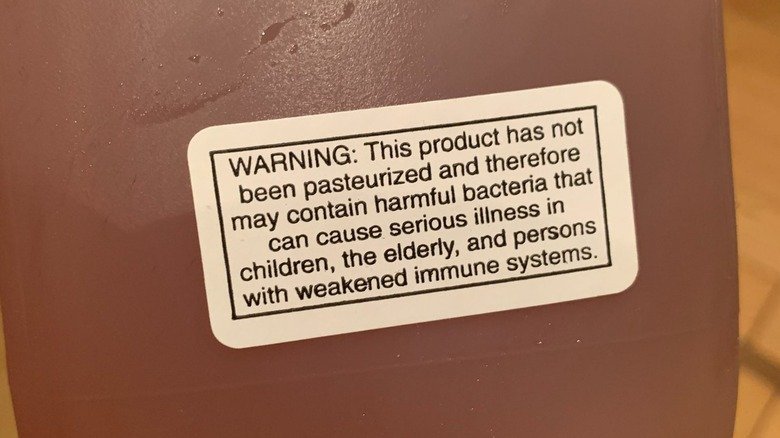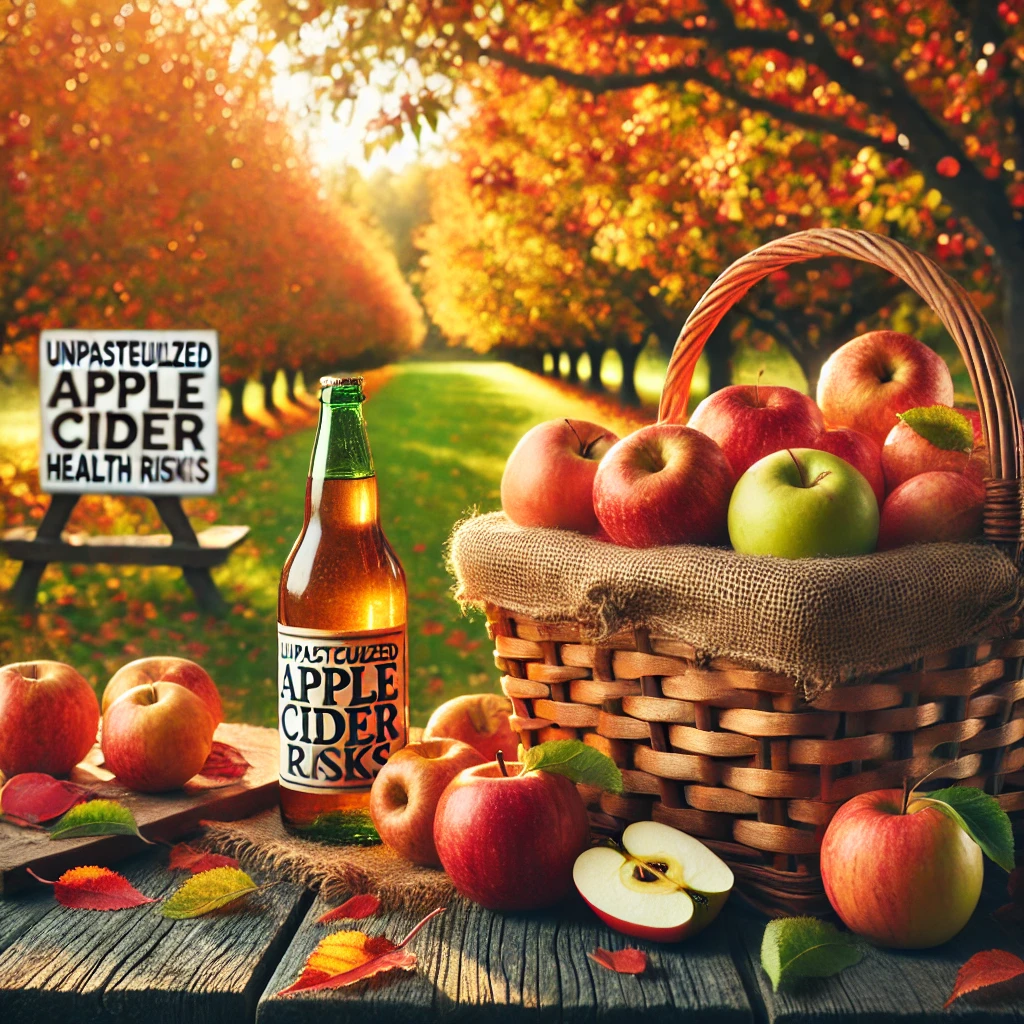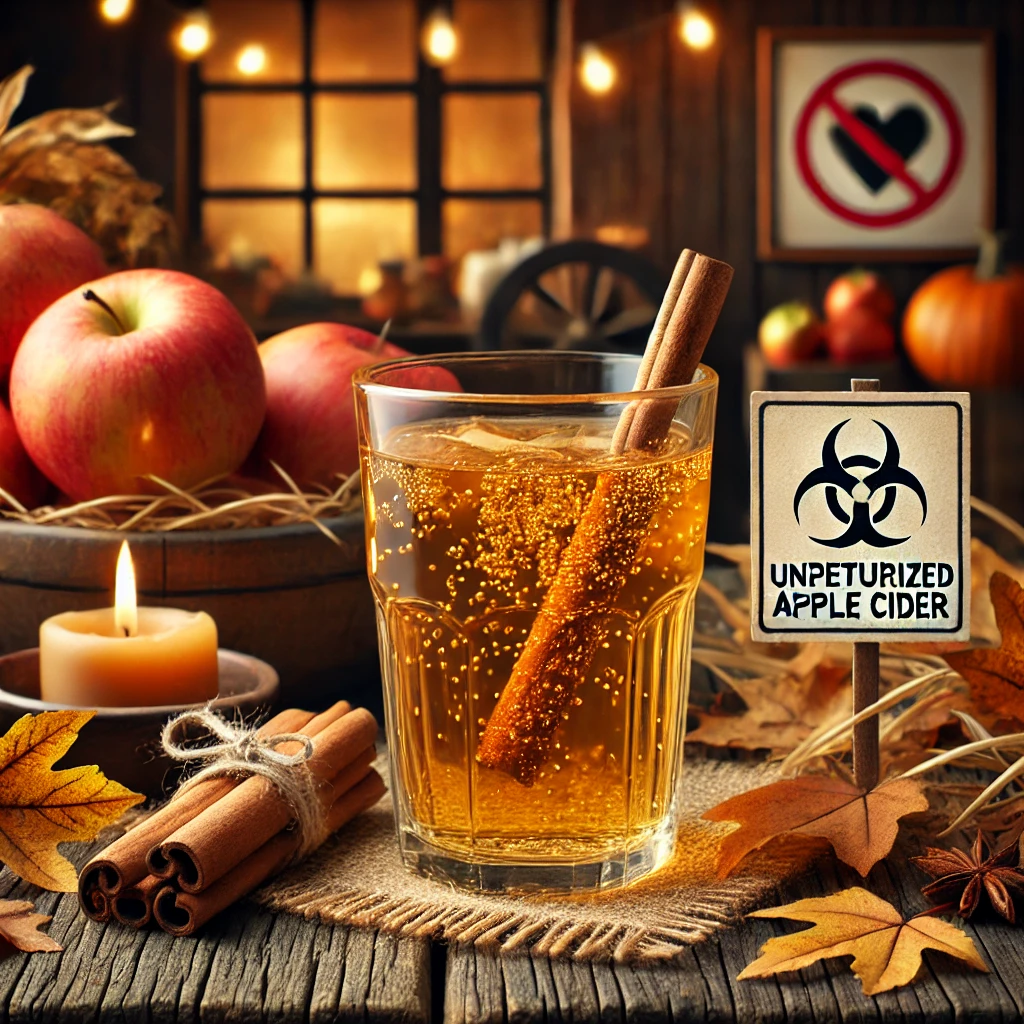Apple Cider Warning: Health Officials Urge Consumers to Be Careful with Fall Treat
As the crisp autumn air settles in and leaves crunch beneath your feet, there’s nothing quite like wrapping your hands around a warm cup of spiced apple cider. This beloved fall drink, often enjoyed at harvest festivals and cozy gatherings, brings with it a nostalgic comfort. But beneath the surface of this seemingly innocent seasonal treat, health officials are issuing an important warning: Be cautious, especially if the cider is unpasteurized.
While apple cider may offer seasonal warmth and a nostalgic flavor, unpasteurized cider can pose significant health risks. Contaminants like Escherichia coli (E. coli) and Salmonella can make their way into the beverage, leading to foodborne illnesses. If not treated properly, a seemingly simple fall treat could lead to hospitalization or worse.
Real-Life Risks of Unpasteurized Apple Cider
In 2020, a farm in New York saw dozens of visitors hospitalized after drinking unpasteurized apple cider tainted with E. coli. This event highlights just how quickly a beloved fall beverage can turn into a health hazard, especially for children and the elderly.
According to the Centers for Disease Control and Prevention (CDC), foodborne illnesses like those caused by E. coli and Salmonella affect 48 million Americans annually. Dr. Lindsey Marshall, a food safety expert, emphasizes:
“Even one sip of contaminated apple cider can introduce harmful bacteria into your system. People often assume cider is safe because it’s made from fruit, but without pasteurization, bacteria can thrive. Those most vulnerable, such as young children and the elderly, should always opt for pasteurized versions.”
Pasteurization: A Key Safety Step
Many apple cider brands use pasteurization, a heat treatment process that kills dangerous pathogens. This method ensures the drink is safe without significantly altering its taste. However, unpasteurized versions, especially those sold at local farms or markets, are still widely available and popular for their “authentic” flavor.

Dr. Amanda Bailey, a registered dietitian and food safety expert, warns:
“If you love unpasteurized cider, be sure it comes from a reputable source and is stored at the proper temperature. Alternatively, heating the cider at home to at least 160°F can make it safe to drink without sacrificing too much flavor.”
Safe Apple Cider Checklist
To ensure a safe and enjoyable experience this fall, follow these tips:
- Choose Pasteurized Cider: Always check the label to ensure the cider is pasteurized. Pasteurized versions are widely available in stores.
- Heat It If Unsure: Heat your cider to at least 160°F on the stove to kill any harmful bacteria if you’re unsure whether it’s pasteurized.
- Proper Storage: Keep cider refrigerated at all times. Unpasteurized cider can ferment or spoil quickly if left at room temperature, increasing the risk of bacterial growth.
- Avoid Fizziness or Off Smells: Cider that smells unusual or has developed a fizzy taste is likely spoiled and should be discarded.
- Know the Symptoms: If you or someone you know develops stomach cramps, diarrhea, or vomiting after consuming cider, seek medical attention. Symptoms of foodborne illnesses can escalate quickly, especially in vulnerable individuals.
Who Is Most at Risk?
Certain groups of people should take extra care when consuming apple cider, particularly if it’s unpasteurized. According to the U.S. Food and Drug Administration (FDA), the following individuals are at greater risk of severe illness from foodborne pathogens:
- Pregnant Women: Unpasteurized cider can be harmful to both the mother and the unborn baby.
- Young Children: Children under 5 are especially vulnerable to severe complications, including kidney failure, from E. coli infections.
- Older Adults: As immune systems weaken with age, seniors are more likely to experience severe reactions to foodborne pathogens.
- People with Weakened Immune Systems: Those with chronic conditions or who are undergoing treatments that suppress the immune system should avoid unpasteurized products entirely.
Public health expert Dr. Karen Smith advises, “If you fall into any of these high-risk categories, it’s best to avoid unpasteurized products altogether. Pasteurized options provide the same nutritional benefits without the risk.”
Nutritional Benefits of Apple Cider

Apple cider, whether pasteurized or not, provides many nutritional benefits. It is rich in antioxidants, polyphenols, and vitamin C, all of which contribute to heart health and a stronger immune system. Plus, the natural sugars in cider make it a quick source of energy.
Dr. Bailey adds:
“Apple cider is an excellent fall beverage, packed with nutrients. However, safety should always come first, especially with unpasteurized products. Make sure you’re protecting your family by choosing the safest option.”
Alternative Options and DIY Tips
For those who love the taste of unpasteurized cider but want to stay safe, consider making your own at home. You can control the temperature and pasteurize the cider yourself by heating it to 160°F. This way, you can retain much of the authentic flavor while ensuring it’s safe to consume.
There are also several low-sugar, low-calorie versions of apple cider available in stores, which offer a healthier alternative without compromising on taste.

Final Thoughts: Enjoy Fall Safely
With the right precautions, you can enjoy apple cider safely this fall. Opt for pasteurized versions, properly heat unpasteurized cider, and store it correctly to reduce health risks. As health officials continue to remind us, a little caution goes a long way when it comes to food safety.
“Stay safe this fall—check your cider’s label before taking that first sip, and if you’re in doubt, heat it! Share these tips with friends and family to ensure that everyone enjoys the season without the risk of illness.”
For more information on food safety, visit the FDA’s Food Safety page here and the CDC’s Foodborne Illnesses guide here.
Consult with top healthcare professionals like Dr. Amanda Bailey and Dr. Karen Smith if you have any concerns about cider or foodborne illness.
for more visit







